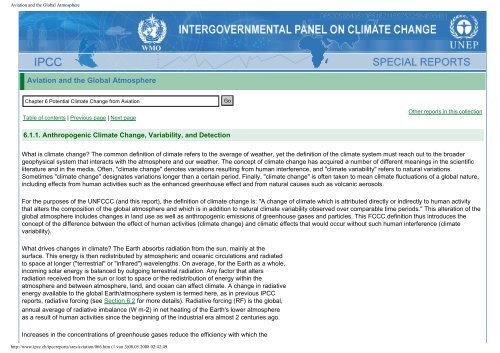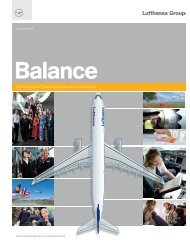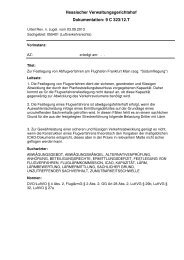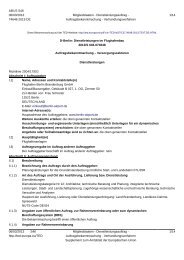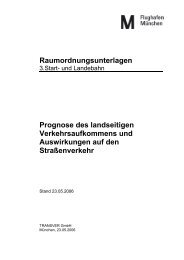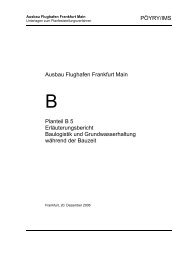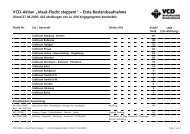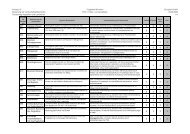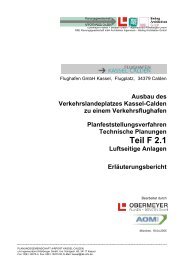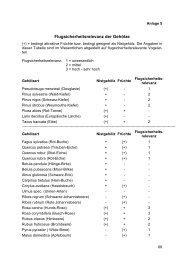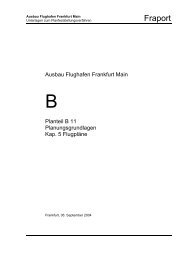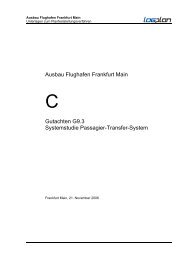- Page 1 and 2:
Aviation and the Global Atmosphere
- Page 3 and 4:
Aviation and the Global Atmosphere
- Page 5 and 6:
Aviation and the Global Atmosphere
- Page 7 and 8:
Aviation and the Global Atmosphere
- Page 9 and 10:
Aviation and the Global Atmosphere
- Page 11 and 12:
Aviation and the Global Atmosphere
- Page 13 and 14:
Aviation and the Global Atmosphere
- Page 15 and 16:
Aviation and the Global Atmosphere
- Page 17 and 18:
Aviation and the Global Atmosphere
- Page 19 and 20:
Aviation and the Global Atmosphere
- Page 21 and 22:
Aviation and the Global Atmosphere
- Page 23 and 24:
Aviation and the Global Atmosphere
- Page 25 and 26:
Aviation and the Global Atmosphere
- Page 27 and 28:
Aviation and the Global Atmosphere
- Page 29 and 30:
Aviation and the Global Atmosphere
- Page 31 and 32:
Aviation and the Global Atmosphere
- Page 33 and 34:
Aviation and the Global Atmosphere
- Page 35 and 36:
Aviation and the Global Atmosphere
- Page 37 and 38:
Aviation and the Global Atmosphere
- Page 39 and 40:
Aviation and the Global Atmosphere
- Page 41 and 42:
Aviation and the Global Atmosphere
- Page 43 and 44:
Aviation and the Global Atmosphere
- Page 45 and 46:
Aviation and the Global Atmosphere
- Page 47 and 48:
Aviation and the Global Atmosphere
- Page 49 and 50:
Aviation and the Global Atmosphere
- Page 51 and 52:
Aviation and the Global Atmosphere
- Page 53 and 54:
Aviation and the Global Atmosphere
- Page 55 and 56:
Aviation and the Global Atmosphere
- Page 57 and 58:
Aviation and the Global Atmosphere
- Page 59 and 60:
Aviation and the Global Atmosphere
- Page 61 and 62:
Aviation and the Global Atmosphere
- Page 63 and 64:
Aviation and the Global Atmosphere
- Page 65 and 66:
Aviation and the Global Atmosphere
- Page 67 and 68:
Aviation and the Global Atmosphere
- Page 69 and 70:
Aviation and the Global Atmosphere
- Page 71 and 72:
Aviation and the Global Atmosphere
- Page 73 and 74:
Aviation and the Global Atmosphere
- Page 75 and 76:
Aviation and the Global Atmosphere
- Page 77 and 78:
Aviation and the Global Atmosphere
- Page 79 and 80:
Aviation and the Global Atmosphere
- Page 81 and 82:
Aviation and the Global Atmosphere
- Page 83 and 84:
Aviation and the Global Atmosphere
- Page 85 and 86:
Aviation and the Global Atmosphere
- Page 87 and 88:
Aviation and the Global Atmosphere
- Page 89 and 90:
Aviation and the Global Atmosphere
- Page 91 and 92:
Aviation and the Global Atmosphere
- Page 93 and 94:
Aviation and the Global Atmosphere
- Page 95 and 96:
Aviation and the Global Atmosphere
- Page 97 and 98:
Aviation and the Global Atmosphere
- Page 99 and 100:
Aviation and the Global Atmosphere
- Page 101 and 102:
Aviation and the Global Atmosphere
- Page 103 and 104:
Aviation and the Global Atmosphere
- Page 105 and 106:
Aviation and the Global Atmosphere
- Page 107 and 108:
Aviation and the Global Atmosphere
- Page 109 and 110:
Aviation and the Global Atmosphere
- Page 111 and 112:
Aviation and the Global Atmosphere
- Page 113 and 114:
Aviation and the Global Atmosphere
- Page 115 and 116:
Aviation and the Global Atmosphere
- Page 117 and 118:
Aviation and the Global Atmosphere
- Page 119 and 120:
Aviation and the Global Atmosphere
- Page 121 and 122:
Aviation and the Global Atmosphere
- Page 123 and 124:
Aviation and the Global Atmosphere
- Page 125 and 126:
Aviation and the Global Atmosphere
- Page 127 and 128:
Aviation and the Global Atmosphere
- Page 129 and 130:
Aviation and the Global Atmosphere
- Page 131 and 132:
Aviation and the Global Atmosphere
- Page 133 and 134:
Aviation and the Global Atmosphere
- Page 135 and 136:
Aviation and the Global Atmosphere
- Page 137 and 138:
Aviation and the Global Atmosphere
- Page 139 and 140:
Aviation and the Global Atmosphere
- Page 141 and 142:
Aviation and the Global Atmosphere
- Page 143 and 144:
Aviation and the Global Atmosphere
- Page 145 and 146:
Aviation and the Global Atmosphere
- Page 147 and 148:
Aviation and the Global Atmosphere
- Page 149 and 150:
Aviation and the Global Atmosphere
- Page 151 and 152:
Aviation and the Global Atmosphere
- Page 153 and 154:
Aviation and the Global Atmosphere
- Page 155 and 156:
Aviation and the Global Atmosphere
- Page 157 and 158:
Aviation and the Global Atmosphere
- Page 159 and 160:
Aviation and the Global Atmosphere
- Page 161 and 162:
Aviation and the Global Atmosphere
- Page 163 and 164:
Aviation and the Global Atmosphere
- Page 165 and 166:
Aviation and the Global Atmosphere
- Page 167 and 168:
Aviation and the Global Atmosphere
- Page 169 and 170:
Aviation and the Global Atmosphere
- Page 171 and 172:
Aviation and the Global Atmosphere
- Page 173 and 174:
Aviation and the Global Atmosphere
- Page 175 and 176:
Aviation and the Global Atmosphere
- Page 177 and 178:
Aviation and the Global Atmosphere
- Page 179 and 180:
Aviation and the Global Atmosphere
- Page 181 and 182:
Aviation and the Global Atmosphere
- Page 183 and 184:
Aviation and the Global Atmosphere
- Page 185 and 186:
Aviation and the Global Atmosphere
- Page 187 and 188:
Aviation and the Global Atmosphere
- Page 189 and 190:
Aviation and the Global Atmosphere
- Page 191 and 192:
Aviation and the Global Atmosphere
- Page 193 and 194:
Aviation and the Global Atmosphere
- Page 195 and 196:
Aviation and the Global Atmosphere
- Page 197 and 198:
Aviation and the Global Atmosphere
- Page 199 and 200:
Aviation and the Global Atmosphere
- Page 201 and 202:
Aviation and the Global Atmosphere
- Page 203 and 204:
Aviation and the Global Atmosphere
- Page 205 and 206:
Aviation and the Global Atmosphere
- Page 207 and 208:
Aviation and the Global Atmosphere
- Page 209 and 210:
Aviation and the Global Atmosphere
- Page 211 and 212:
Aviation and the Global Atmosphere
- Page 213 and 214:
Aviation and the Global Atmosphere
- Page 215 and 216:
Aviation and the Global Atmosphere
- Page 217 and 218:
Aviation and the Global Atmosphere
- Page 219 and 220:
Aviation and the Global Atmosphere
- Page 221 and 222:
Aviation and the Global Atmosphere
- Page 223 and 224:
Aviation and the Global Atmosphere
- Page 225 and 226:
Aviation and the Global Atmosphere
- Page 227 and 228:
Aviation and the Global Atmosphere
- Page 229 and 230:
Aviation and the Global Atmosphere
- Page 231 and 232:
Aviation and the Global Atmosphere
- Page 233 and 234:
Aviation and the Global Atmosphere
- Page 235 and 236:
Aviation and the Global Atmosphere
- Page 237 and 238:
Aviation and the Global Atmosphere
- Page 239 and 240:
Aviation and the Global Atmosphere
- Page 241 and 242:
Aviation and the Global Atmosphere
- Page 243 and 244:
Aviation and the Global Atmosphere
- Page 245 and 246:
Aviation and the Global Atmosphere
- Page 247 and 248:
Aviation and the Global Atmosphere
- Page 249 and 250:
Aviation and the Global Atmosphere
- Page 251 and 252:
Aviation and the Global Atmosphere
- Page 253 and 254:
Aviation and the Global Atmosphere
- Page 255 and 256:
Aviation and the Global Atmosphere
- Page 257 and 258:
Aviation and the Global Atmosphere
- Page 259 and 260:
Aviation and the Global Atmosphere
- Page 261 and 262:
Aviation and the Global Atmosphere
- Page 263 and 264:
Aviation and the Global Atmosphere
- Page 265 and 266:
Aviation and the Global Atmosphere
- Page 267 and 268:
Aviation and the Global Atmosphere
- Page 269 and 270:
Aviation and the Global Atmosphere
- Page 271 and 272:
Aviation and the Global Atmosphere
- Page 273 and 274:
Aviation and the Global Atmosphere
- Page 275 and 276:
Aviation and the Global Atmosphere
- Page 277 and 278:
Aviation and the Global Atmosphere
- Page 279 and 280:
Aviation and the Global Atmosphere
- Page 281 and 282:
Aviation and the Global Atmosphere
- Page 283 and 284:
Aviation and the Global Atmosphere
- Page 285 and 286:
Aviation and the Global Atmosphere
- Page 287 and 288:
Aviation and the Global Atmosphere
- Page 289 and 290:
Aviation and the Global Atmosphere
- Page 291 and 292:
Aviation and the Global Atmosphere
- Page 293 and 294:
Aviation and the Global Atmosphere
- Page 295 and 296:
Aviation and the Global Atmosphere
- Page 297 and 298:
Aviation and the Global Atmosphere
- Page 299 and 300:
Aviation and the Global Atmosphere
- Page 301 and 302:
Aviation and the Global Atmosphere
- Page 303 and 304:
Aviation and the Global Atmosphere
- Page 305 and 306:
Aviation and the Global Atmosphere
- Page 307 and 308:
Aviation and the Global Atmosphere
- Page 309 and 310:
Aviation and the Global Atmosphere
- Page 311 and 312:
Aviation and the Global Atmosphere
- Page 313 and 314: Aviation and the Global Atmosphere
- Page 315 and 316: Aviation and the Global Atmosphere
- Page 317 and 318: Aviation and the Global Atmosphere
- Page 319 and 320: Aviation and the Global Atmosphere
- Page 321 and 322: Aviation and the Global Atmosphere
- Page 323 and 324: Aviation and the Global Atmosphere
- Page 325 and 326: Aviation and the Global Atmosphere
- Page 327 and 328: Aviation and the Global Atmosphere
- Page 329 and 330: Aviation and the Global Atmosphere
- Page 331 and 332: Aviation and the Global Atmosphere
- Page 333 and 334: Aviation and the Global Atmosphere
- Page 335 and 336: Aviation and the Global Atmosphere
- Page 337 and 338: Aviation and the Global Atmosphere
- Page 339 and 340: Aviation and the Global Atmosphere
- Page 341 and 342: Aviation and the Global Atmosphere
- Page 343 and 344: Aviation and the Global Atmosphere
- Page 345 and 346: Aviation and the Global Atmosphere
- Page 347 and 348: Aviation and the Global Atmosphere
- Page 349 and 350: Aviation and the Global Atmosphere
- Page 351 and 352: Aviation and the Global Atmosphere
- Page 353 and 354: Aviation and the Global Atmosphere
- Page 355 and 356: Aviation and the Global Atmosphere
- Page 357 and 358: Aviation and the Global Atmosphere
- Page 359 and 360: Aviation and the Global Atmosphere
- Page 361 and 362: Aviation and the Global Atmosphere
- Page 363: Aviation and the Global Atmosphere
- Page 367 and 368: Aviation and the Global Atmosphere
- Page 369 and 370: Aviation and the Global Atmosphere
- Page 371 and 372: Aviation and the Global Atmosphere
- Page 373 and 374: Aviation and the Global Atmosphere
- Page 375 and 376: Aviation and the Global Atmosphere
- Page 377 and 378: Aviation and the Global Atmosphere
- Page 379 and 380: Aviation and the Global Atmosphere
- Page 381 and 382: Aviation and the Global Atmosphere
- Page 383 and 384: Aviation and the Global Atmosphere
- Page 385 and 386: Aviation and the Global Atmosphere
- Page 387 and 388: Aviation and the Global Atmosphere
- Page 389 and 390: Aviation and the Global Atmosphere
- Page 391 and 392: Aviation and the Global Atmosphere
- Page 393 and 394: Aviation and the Global Atmosphere
- Page 395 and 396: Aviation and the Global Atmosphere
- Page 397 and 398: Aviation and the Global Atmosphere
- Page 399 and 400: Aviation and the Global Atmosphere
- Page 401 and 402: Aviation and the Global Atmosphere
- Page 403 and 404: Aviation and the Global Atmosphere
- Page 405 and 406: Aviation and the Global Atmosphere
- Page 407 and 408: Aviation and the Global Atmosphere
- Page 409 and 410: Aviation and the Global Atmosphere
- Page 411 and 412: Aviation and the Global Atmosphere
- Page 413 and 414: Aviation and the Global Atmosphere
- Page 415 and 416:
Aviation and the Global Atmosphere
- Page 417 and 418:
Aviation and the Global Atmosphere
- Page 419 and 420:
Aviation and the Global Atmosphere
- Page 421 and 422:
Aviation and the Global Atmosphere
- Page 423 and 424:
Aviation and the Global Atmosphere
- Page 425 and 426:
Aviation and the Global Atmosphere
- Page 427 and 428:
Aviation and the Global Atmosphere
- Page 429 and 430:
Aviation and the Global Atmosphere
- Page 431 and 432:
Aviation and the Global Atmosphere
- Page 433 and 434:
Aviation and the Global Atmosphere
- Page 435 and 436:
Aviation and the Global Atmosphere
- Page 437 and 438:
Aviation and the Global Atmosphere
- Page 439 and 440:
Aviation and the Global Atmosphere
- Page 441 and 442:
Aviation and the Global Atmosphere
- Page 443 and 444:
Aviation and the Global Atmosphere
- Page 445 and 446:
Aviation and the Global Atmosphere
- Page 447 and 448:
Aviation and the Global Atmosphere
- Page 449 and 450:
Aviation and the Global Atmosphere
- Page 451 and 452:
Aviation and the Global Atmosphere
- Page 453 and 454:
Aviation and the Global Atmosphere
- Page 455 and 456:
Aviation and the Global Atmosphere
- Page 457 and 458:
Aviation and the Global Atmosphere
- Page 459 and 460:
Aviation and the Global Atmosphere
- Page 461 and 462:
Aviation and the Global Atmosphere
- Page 463 and 464:
Aviation and the Global Atmosphere
- Page 465 and 466:
Aviation and the Global Atmosphere
- Page 467 and 468:
Aviation and the Global Atmosphere
- Page 469 and 470:
Aviation and the Global Atmosphere
- Page 471 and 472:
Aviation and the Global Atmosphere
- Page 473 and 474:
Aviation and the Global Atmosphere
- Page 475 and 476:
Aviation and the Global Atmosphere
- Page 477 and 478:
Aviation and the Global Atmosphere
- Page 479 and 480:
Aviation and the Global Atmosphere
- Page 481 and 482:
Aviation and the Global Atmosphere
- Page 483 and 484:
Aviation and the Global Atmosphere
- Page 485 and 486:
Aviation and the Global Atmosphere
- Page 487 and 488:
Aviation and the Global Atmosphere
- Page 489 and 490:
Aviation and the Global Atmosphere
- Page 491 and 492:
Aviation and the Global Atmosphere
- Page 493 and 494:
Aviation and the Global Atmosphere
- Page 495 and 496:
Aviation and the Global Atmosphere
- Page 497 and 498:
Aviation and the Global Atmosphere
- Page 499 and 500:
Aviation and the Global Atmosphere
- Page 501 and 502:
Aviation and the Global Atmosphere
- Page 503 and 504:
Aviation and the Global Atmosphere
- Page 505 and 506:
Aviation and the Global Atmosphere
- Page 507 and 508:
Aviation and the Global Atmosphere
- Page 509 and 510:
Aviation and the Global Atmosphere
- Page 511 and 512:
Aviation and the Global Atmosphere
- Page 513 and 514:
Aviation and the Global Atmosphere
- Page 515 and 516:
Aviation and the Global Atmosphere
- Page 517 and 518:
Aviation and the Global Atmosphere
- Page 519 and 520:
Aviation and the Global Atmosphere
- Page 521 and 522:
Aviation and the Global Atmosphere
- Page 523 and 524:
Aviation and the Global Atmosphere
- Page 525 and 526:
Aviation and the Global Atmosphere
- Page 527 and 528:
Aviation and the Global Atmosphere
- Page 529 and 530:
Aviation and the Global Atmosphere
- Page 531 and 532:
Aviation and the Global Atmosphere
- Page 533 and 534:
Aviation and the Global Atmosphere
- Page 535 and 536:
Aviation and the Global Atmosphere
- Page 537 and 538:
Aviation and the Global Atmosphere
- Page 539 and 540:
Aviation and the Global Atmosphere
- Page 541 and 542:
Aviation and the Global Atmosphere
- Page 543 and 544:
Aviation and the Global Atmosphere
- Page 545 and 546:
Aviation and the Global Atmosphere
- Page 547 and 548:
Aviation and the Global Atmosphere
- Page 549 and 550:
Aviation and the Global Atmosphere
- Page 551 and 552:
Aviation and the Global Atmosphere
- Page 553 and 554:
Aviation and the Global Atmosphere
- Page 555 and 556:
Aviation and the Global Atmosphere
- Page 557 and 558:
Aviation and the Global Atmosphere
- Page 559 and 560:
Aviation and the Global Atmosphere
- Page 561 and 562:
Aviation and the Global Atmosphere
- Page 563 and 564:
Aviation and the Global Atmosphere
- Page 565 and 566:
Aviation and the Global Atmosphere
- Page 567 and 568:
Aviation and the Global Atmosphere
- Page 569 and 570:
Aviation and the Global Atmosphere
- Page 571 and 572:
Aviation and the Global Atmosphere
- Page 573 and 574:
Aviation and the Global Atmosphere
- Page 575 and 576:
Aviation and the Global Atmosphere
- Page 577 and 578:
Aviation and the Global Atmosphere
- Page 579 and 580:
Aviation and the Global Atmosphere
- Page 581 and 582:
Aviation and the Global Atmosphere
- Page 583 and 584:
Aviation and the Global Atmosphere
- Page 585 and 586:
Aviation and the Global Atmosphere
- Page 587 and 588:
Aviation and the Global Atmosphere
- Page 589 and 590:
Aviation and the Global Atmosphere
- Page 591 and 592:
Aviation and the Global Atmosphere
- Page 593 and 594:
Aviation and the Global Atmosphere
- Page 595 and 596:
Aviation and the Global Atmosphere
- Page 597 and 598:
Aviation and the Global Atmosphere
- Page 599 and 600:
Aviation and the Global Atmosphere
- Page 601 and 602:
Aviation and the Global Atmosphere
- Page 603 and 604:
Aviation and the Global Atmosphere
- Page 605 and 606:
Aviation and the Global Atmosphere
- Page 607 and 608:
Aviation and the Global Atmosphere
- Page 609 and 610:
Aviation and the Global Atmosphere
- Page 611 and 612:
Aviation and the Global Atmosphere
- Page 613 and 614:
Aviation and the Global Atmosphere
- Page 615 and 616:
Aviation and the Global Atmosphere
- Page 617 and 618:
Aviation and the Global Atmosphere
- Page 619 and 620:
Aviation and the Global Atmosphere
- Page 621 and 622:
Aviation and the Global Atmosphere
- Page 623 and 624:
Aviation and the Global Atmosphere
- Page 625 and 626:
Aviation and the Global Atmosphere
- Page 627 and 628:
Aviation and the Global Atmosphere
- Page 629 and 630:
Aviation and the Global Atmosphere
- Page 631 and 632:
Aviation and the Global Atmosphere
- Page 633 and 634:
Aviation and the Global Atmosphere
- Page 635 and 636:
Aviation and the Global Atmosphere
- Page 637 and 638:
Aviation and the Global Atmosphere
- Page 639 and 640:
Aviation and the Global Atmosphere
- Page 641 and 642:
Aviation and the Global Atmosphere
- Page 643 and 644:
Aviation and the Global Atmosphere
- Page 645 and 646:
Aviation and the Global Atmosphere
- Page 647 and 648:
Aviation and the Global Atmosphere
- Page 649 and 650:
Aviation and the Global Atmosphere
- Page 651 and 652:
Aviation and the Global Atmosphere
- Page 653 and 654:
Aviation and the Global Atmosphere
- Page 655 and 656:
Aviation and the Global Atmosphere
- Page 657 and 658:
Aviation and the Global Atmosphere
- Page 659 and 660:
Aviation and the Global Atmosphere
- Page 661 and 662:
Aviation and the Global Atmosphere
- Page 663 and 664:
Aviation and the Global Atmosphere
- Page 665 and 666:
Aviation and the Global Atmosphere
- Page 667 and 668:
Aviation and the Global Atmosphere
- Page 669 and 670:
Aviation and the Global Atmosphere
- Page 671 and 672:
Aviation and the Global Atmosphere
- Page 673 and 674:
Aviation and the Global Atmosphere
- Page 675 and 676:
Footnotes for Aviation and the Glob
- Page 677 and 678:
Aviation and the Global Atmosphere
- Page 679 and 680:
Aviation and the Global Atmosphere
- Page 681 and 682:
Aviation and the Global Atmosphere
- Page 683 and 684:
Aviation and the Global Atmosphere
- Page 685 and 686:
Aviation and the Global Atmosphere
- Page 687 and 688:
Aviation and the Global Atmosphere
- Page 689 and 690:
Aviation and the Global Atmosphere
- Page 691 and 692:
Aviation and the Global Atmosphere
- Page 693 and 694:
Aviation and the Global Atmosphere
- Page 695 and 696:
Aviation and the Global Atmosphere
- Page 697 and 698:
Aviation and the Global Atmosphere
- Page 699 and 700:
Aviation and the Global Atmosphere
- Page 701 and 702:
Aviation and the Global Atmosphere
- Page 703 and 704:
Aviation and the Global Atmosphere
- Page 705 and 706:
Aviation and the Global Atmosphere
- Page 707 and 708:
Aviation and the Global Atmosphere
- Page 709 and 710:
Aviation and the Global Atmosphere
- Page 711 and 712:
Aviation and the Global Atmosphere
- Page 713 and 714:
Aviation and the Global Atmosphere
- Page 715 and 716:
Aviation and the Global Atmosphere
- Page 717 and 718:
Aviation and the Global Atmosphere
- Page 719 and 720:
Aviation and the Global Atmosphere
- Page 721 and 722:
Aviation and the Global Atmosphere
- Page 723 and 724:
Aviation and the Global Atmosphere
- Page 725 and 726:
Aviation and the Global Atmosphere
- Page 727 and 728:
Aviation and the Global Atmosphere
- Page 729 and 730:
Aviation and the Global Atmosphere
- Page 731 and 732:
Aviation and the Global Atmosphere
- Page 733 and 734:
Aviation and the Global Atmosphere
- Page 735 and 736:
Aviation and the Global Atmosphere
- Page 737 and 738:
Aviation and the Global Atmosphere
- Page 739 and 740:
Aviation and the Global Atmosphere
- Page 741 and 742:
Aviation and the Global Atmosphere
- Page 743 and 744:
Aviation and the Global Atmosphere
- Page 745 and 746:
Aviation and the Global Atmosphere
- Page 747 and 748:
Aviation and the Global Atmosphere
- Page 749 and 750:
Aviation and the Global Atmosphere
- Page 751 and 752:
Aviation and the Global Atmosphere
- Page 753 and 754:
Aviation and the Global Atmosphere
- Page 755 and 756:
Aviation and the Global Atmosphere
- Page 757 and 758:
Aviation and the Global Atmosphere
- Page 759 and 760:
Aviation and the Global Atmosphere
- Page 761 and 762:
Aviation and the Global Atmosphere
- Page 763 and 764:
Aviation and the Global Atmosphere
- Page 765 and 766:
Aviation and the Global Atmosphere
- Page 767 and 768:
Aviation and the Global Atmosphere
- Page 769 and 770:
Aviation and the Global Atmosphere
- Page 771 and 772:
Aviation and the Global Atmosphere
- Page 773 and 774:
Aviation and the Global Atmosphere
- Page 775 and 776:
Aviation and the Global Atmosphere
- Page 777 and 778:
Aviation and the Global Atmosphere
- Page 779 and 780:
Aviation and the Global Atmosphere
- Page 781 and 782:
Aviation and the Global Atmosphere
- Page 783 and 784:
Aviation and the Global Atmosphere
- Page 785 and 786:
Aviation and the Global Atmosphere
- Page 787 and 788:
Aviation and the Global Atmosphere
- Page 789 and 790:
Aviation and the Global Atmosphere
- Page 791 and 792:
Aviation and the Global Atmosphere
- Page 793 and 794:
Aviation and the Global Atmosphere
- Page 795 and 796:
Aviation and the Global Atmosphere
- Page 797 and 798:
Aviation and the Global Atmosphere
- Page 799 and 800:
Aviation and the Global Atmosphere
- Page 801 and 802:
Aviation and the Global Atmosphere
- Page 803 and 804:
Aviation and the Global Atmosphere
- Page 805 and 806:
Aviation and the Global Atmosphere
- Page 807 and 808:
Aviation and the Global Atmosphere
- Page 809 and 810:
Aviation and the Global Atmosphere
- Page 811 and 812:
Aviation and the Global Atmosphere
- Page 813 and 814:
Aviation and the Global Atmosphere
- Page 815 and 816:
Aviation and the Global Atmosphere
- Page 817 and 818:
Aviation and the Global Atmosphere
- Page 819 and 820:
Aviation and the Global Atmosphere
- Page 821 and 822:
Aviation and the Global Atmosphere
- Page 823 and 824:
Aviation and the Global Atmosphere
- Page 825 and 826:
Aviation and the Global Atmosphere
- Page 827 and 828:
Aviation and the Global Atmosphere
- Page 829 and 830:
Aviation and the Global Atmosphere
- Page 831 and 832:
Aviation and the Global Atmosphere
- Page 833 and 834:
Aviation and the Global Atmosphere
- Page 835 and 836:
Aviation and the Global Atmosphere
- Page 837 and 838:
Aviation and the Global Atmosphere
- Page 839 and 840:
Aviation and the Global Atmosphere
- Page 841 and 842:
Aviation and the Global Atmosphere
- Page 843 and 844:
Aviation and the Global Atmosphere
- Page 845 and 846:
Aviation and the Global Atmosphere
- Page 847 and 848:
Aviation and the Global Atmosphere
- Page 849 and 850:
Aviation and the Global Atmosphere
- Page 851 and 852:
Aviation and the Global Atmosphere
- Page 853 and 854:
Aviation and the Global Atmosphere
- Page 855 and 856:
Aviation and the Global Atmosphere
- Page 857 and 858:
Aviation and the Global Atmosphere
- Page 859 and 860:
Aviation and the Global Atmosphere
- Page 861 and 862:
Aviation and the Global Atmosphere
- Page 863 and 864:
Aviation and the Global Atmosphere
- Page 865 and 866:
Aviation and the Global Atmosphere
- Page 867 and 868:
Aviation and the Global Atmosphere
- Page 869 and 870:
Aviation and the Global Atmosphere
- Page 871 and 872:
Aviation and the Global Atmosphere
- Page 873 and 874:
Aviation and the Global Atmosphere
- Page 875 and 876:
Aviation and the Global Atmosphere
- Page 877 and 878:
Aviation and the Global Atmosphere
- Page 879 and 880:
Aviation and the Global Atmosphere
- Page 881 and 882:
Aviation and the Global Atmosphere


